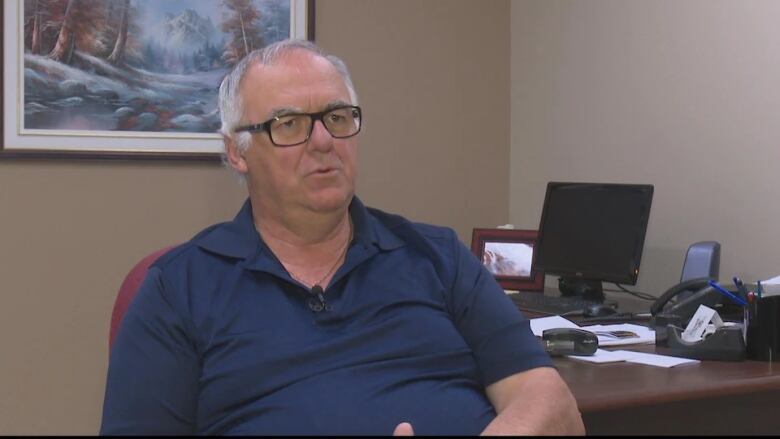What’s causing N.B.’s mystery neurological disease? Worried residents want answers
News this week that a cluster of more than 40 cases of an unknown neurological disease have been identified and found only in New Brunswick has residents of several communities on edge.
The mystery illness has similarities to Creutzfeldt-Jakob disease, a rare and fatal brain disease.
First diagnosed in 2015, according to an internal Public Health memo sent this month to medical professionals, the disease affects all age groups and appears to be concentrated in the Acadian Peninsula in northeast New Brunswick and the Moncton region in the southeast.
Forty-three cases have been identified, and five people have died.
Since that news was reported on Wednesday, people in those communities have been wondering how alarmed they should be.
“People are wondering, what is it? Why is it only here? We are hoping that somebody will tell us,” Anita Savoie Robichaud, the mayor of Shippagan, a town on the peninsula, said Friday.

Yvon Godin, the mayor of Bertrand, a village further north on the peninsula, who also chairs the Forum of Acadian Peninsula Mayors, agrees.
“We are very, very worried about it,” Godin said. “Residents are anxious, they’re asking ‘Is it moose meat? Is it deer? Is it contagious?’ We need to know, as fast as possible, what is causing this disease.”
Dr. Neil Cashman understands the concern.
Cashman, a professor in the University of British Columbia’s faculty of medicine, is a neurologist with a special expertise in prion diseases — a group of neurodegenerative diseases caused by proteinaceous infectious particles, or prions — including Creutzfeldt-Jakob disease.
When Cashman first heard about the cases in New Brunswick, he says his first thought was, “We have a problem on our hands.”
Clearly, he said, “this was a call to arms to identify the cause.”
Those efforts are already underway.
Teams of researchers, scientists and epidemiologists began assembling about a year ago, both at the national level at Health Canada’s Creutzfeldt-Jakob Disease Surveillance System, to which Cashman is acting as an adviser, and at the provincial level with a research team headed by Moncton neurologist Dr. Alier Marrero.
Having this news put under “the active scrutiny of the public” this week has been a good thing, Cashman said, because it has pulled in clinical and scientific expertise from across Canada.
“There are people offering to help, and these people would not be doing that unless they were aware of this cluster.”
But their work is just beginning.
‘This is something new’
Cashman has a pretty good idea what this mystery disease is not.
All the evidence, he said, points to this not being a prion disease such as Creutzfeldt-Jakob disease.
“There is no evidence, not a hint — even in the three autopsies that have been performed — of a human prion disease. That came as a surprise to me, frankly,” he said. “So in essence, this is something new, and we need to get on the stick and figure out what this is.”
Cashman said he’s tapping into his expertise in neurology and environmental toxins to look for other explanations.
The fact that the cases are limited to certain regions “fits with the notion of an environmental toxin,” he said.
A possible culprit might be B-methylamino-L-alanine (BMAA), an environmental toxin made by certain bacteria that can accumulate in fish and shellfish.
Domoic acid, another toxin produced by bacteria and that accumulates in shellfish, sardines and anchovies, is another possibility. So is lead, which can be responsible for clusters of neurodegeneration.

“All of these are speculation at this point,” Cashman stressed. “A lot of scientific acumen will be required to pin it down to a cause.”
That will take time, and no one can say for sure how long.
“It’s possible ongoing investigations will give us the cause in a week, or it’s possible it will give us the cause in a year,” he said.
“There’s no sensible timeline I can provide on when we’ll have an answer. It’s just something that has to be the focus of scientific attention, and as rapidly as possible.”
In the meantime, he said, he’d advise residents to continue doing what they have been doing, try not to be consumed by anxiety and have faith that a solution will be found.
“I know it sounds like a tired statement, but I would say stay calm, carry on,” he said. “We’ve got to figure it out and the Public Health Agency of Canada is in a good position to do that and come up with a cause … and then of course it can be ameliorated.”
www.cbc.ca 2021-03-20 08:00:00


